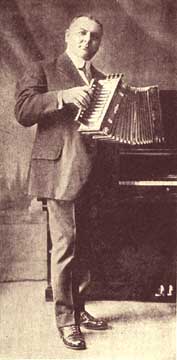Annotation:Kitty of Coleraine (1)
X:2 T:Kitty of Coleraine [1] M:6/8 L:1/8 R:Air or Jig S:O'Farrell - Pocket Companion, vol. IV (c. 1810) Z:AK/Fiddler's Companion K:D A | Add dfa | e>f e/d/ dc A/A/ | Add dfa | gec d2 A/A/ | Add dfa | e>fd dcA | dfa dgb | A>Bc d2 || f/g/ | afd ecA | afd ecA | aec Bdf | cdB A2 A/G/ | FAd dfa | e>f e/d/ dcA | dfa dgb | ABc d2 ||
KITTY OF COLERAINE [1] (Caitilin Ua Cuilratain). AKA - "Kate of Coleraine." AKA and see "Colairne," "Coleraine (2)." Irish, Air (6/8 time, "gaily"). D Major (O'Farrell, O'Neill): C Major (Howe): F Major (Clinton). Standard tuning (fiddle). AB (O'Farrell, O'Neill): AABA (Howe). "Road to Skye (The)" is a very closely related tune, and in fact Coleraine, in Northern Ireland is just across the straits from the Western Isles of Scotland, including Skye. The song is known as an Ulster folksong. The tune also appears in the mid-19th century music manuscript collection of County Cork uilleann piper and Church of Ireland cleric James Goodman [1]. See also the similar and perhaps cognate "Belle of the Kitchen (1)," "Paddy's Resource (1)," "Rover (2) (The)."
Words set to the tune (collected in County Derry) begin:
As beautiful Kitty one morning was tripping,
With a pitcher of milk from the fair of Coleraine,
When she saw him she stumbled, the pitcher it tumbled,
And all the sweet buttermilk watered the plain.
Oh! What shall I do now, 'twas looking at you now,
Sure, sure, such a pitcher I'll ne'er meet again.
'Twas the pride of my dairy, Oh, Barney McCleary,
You're sent as a plague on the girls of Coleraine.
Thomas Moore used the melody for his song "Omens" in Irish Melodies (1807). The melody appears in the 1840 music manuscript collection of John Rook, from the Wigton area of Cumbria, and in the mid-19th century music copybook of flute player William Killey (Jurby, Isle of Man). The alternate title "Colairne" comes from a 1920 78 RPM recording by Brooklyn accordion player John J. "Dutch" Kimmel (1866-1942). John Clinton's (1841) version, in 'F' major, is a flute setting.


